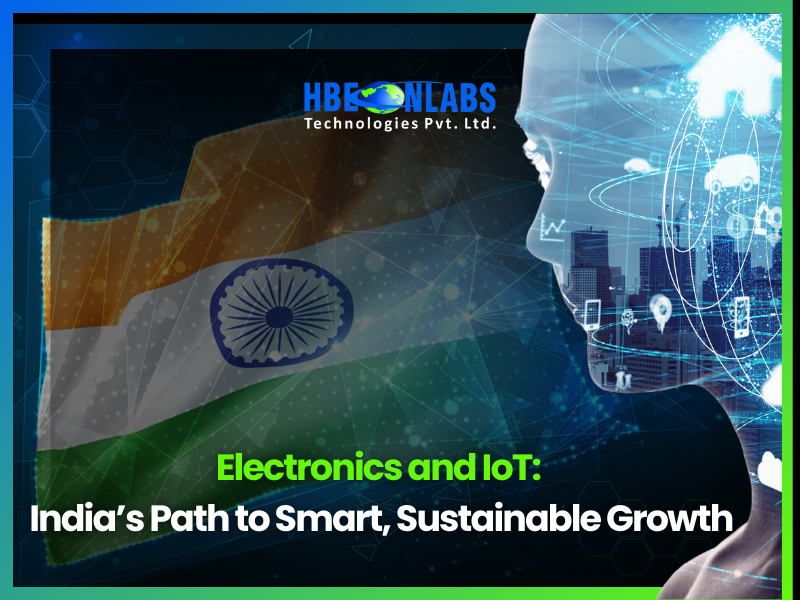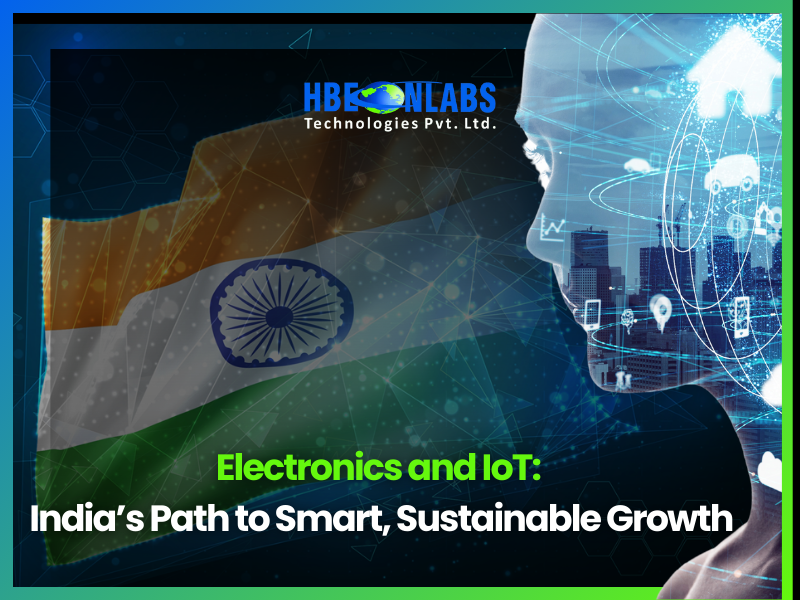Address:
Plot No. B-6/5, Site 5 Surajpur Industrial Area, Block F, Surajpur Site V, Greater Noida, Uttar Pradesh 201306
For Business: +91 9212314779
For Careers: +91 84483 40400
Landline: 0120-4298000
Address:
Plot No. B-6/5, Site 5 Surajpur Industrial Area, Block F, Surajpur Site V, Greater Noida, Uttar Pradesh 201306
For Business: +91 9212314779
For Careers: +91 84483 40400
Landline: 0120-4298000


Have you ever wondered what powers the seamless integration of smart technologies into our daily lives?
The answer lies in the convergence of electronics development, IoT, and renewable solutions like solar technology.
These industries are not only reshaping consumer markets but are also solving some of the most pressing challenges faced by businesses and governments in India.
As a global leader in electronics manufacturing services, India is perfectly poised to leverage IoT and artificial intelligence to push boundaries in everything from smart cities to sustainable farming. Let’s uncover how these technologies are playing a pivotal role in fostering innovation and efficiency across industries.
India’s electronics industry, centered in Noida and Greater Noida, is undergoing a significant transformation. Government support through initiatives like the PLI Scheme has encouraged investment in AI-driven IoT systems, while the Smart Cities Mission aims to connect urban places with intelligent solutions. From enhancing supply chains to revolutionizing agriculture, the future is both connected and sustainable.
How Electronics and IoT are Revolutionizing Industries in India
Electronics development has transformed from standalone devices to interconnected systems powered by IoT. From manufacturing floors to farmlands, here’s how this revolution is taking shape:
AI-powered IoT devices are being deployed to monitor energy usage in factories, ensuring efficiency and cost savings.
In agriculture, IoT solutions like smart irrigation systems and soil monitoring sensors are boosting yields while conserving resources. The public sector, too, is embracing IoT for traffic management, waste disposal, and even crime prevention. These applications underline the versatility of IoT when paired with robust electronic systems.
One notable example is the integration of solar-powered IoT devices in rural areas. These systems not only offer off-grid energy solutions but also enable remote monitoring and predictive maintenance, making them ideal for regions with limited infrastructure.
The Growing Demand for Embedded Systems in IoT Applications
Embedded systems act as the backbone of IoT devices, enabling real-time data processing and seamless communication. Electronics Company in Greater Noida are leading the charge in developing customized embedded systems for sectors like automotive, healthcare, and renewable energy.
For instance, embedded systems in electric vehicles allow for real-time diagnostics, predictive maintenance, and route optimization. Similarly, healthcare devices equipped with IoT capabilities are revolutionizing patient care by providing continuous monitoring and early diagnosis.
Focus on embedded systems companies in India is not limited to private enterprises. The government’s Digital India Initiative promotes local manufacturing and innovation, creating opportunities for startups and established players alike to experiment with new applications and technologies.
The Role of Renewable Energy in Electronics and IoT
As India works toward achieving its goal of 50% renewable energy capacity by 2030, the integration of solar technology into electronics is becoming a game-changer. Solar panels equipped with IoT sensors provide real-time performance data, enabling predictive maintenance and optimizing energy output.
These innovations extend beyond the energy sector. Solar-powered IoT devices are being used in agriculture to monitor weather conditions and automate irrigation, reducing dependence on non-renewable energy sources. Similarly, solar-integrated street lights and traffic management systems are becoming common in smart cities across India.
The synergy between renewable energy, IoT, and electronics is driving sustainable growth, reducing costs, and creating a more eco-friendly future.
Challenges and Opportunities in IoT and Electronics Manufacturing
While the potential for IoT and electronics manufacturing in India is immense, certain challenges need to be addressed. High initial costs and a lack of skilled workforce remain barriers for small and medium enterprises.
However, government initiatives like the National Policy on Electronics 2025 aim to bridge this gap by promoting R&D and offering incentives for skill development.
Opportunities abound for companies willing to invest in AI-powered IoT systems and iot development companies. From predictive analytics to real-time monitoring, these solutions can significantly enhance productivity and reduce operational costs. Businesses that adapt to these technologies early will be well-positioned to lead in an increasingly fierce market.
The convergence of electronics, IoT, and renewable energy is not just shaping industries; it’s transforming how we live and work. With strong government support and technological advancements, India is becoming a global hub for innovation in these fields.
Companies like HBeonLabs are at the forefront, offering cutting-edge IoT-enabled electronics company, that cater to diverse industries, from smart agriculture to embedded systems.
For businesses, the message is clear: the future is connected, intelligent, and sustainable. Partnering with experts like HBeonLabs can help you integrate IoT and electronics seamlessly into your operations, driving efficiency, sustainability, and growth.
If you’re ready to explore how IoT and electronics can transform your business, HBeonLabs is here to help. Let’s build the future together.